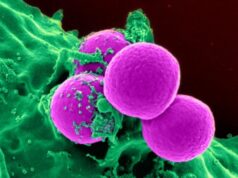Green tea.
Credit: © KMNPhoto / Fotolia
A study published online in The FASEB Journal, involving mice, suggests that EGCG (epigallocatechin-3-gallate), the most abundant catechin and biologically active component in green tea, could alleviate high-fat and high-fructose (HFFD)-induced insulin resistance and cognitive impairment. Previous research pointed to the potential of EGCG to treat a variety of human diseases, yet until now, EGCG’s impact on insulin resistance and cognitive deficits triggered in the brain by a Western diet remained unclear.
Liu and colleagues divided 3-month-old male C57BL/6J mice into three groups based on diet:
1) a control group fed with a standard diet,
2) a group fed with an HFFD diet, and 3) a group fed with an HFFD diet and 2 grams of EGCG per liter of drinking water.
Find your dream job in the space industry. Check our Space Job Board »
For 16 weeks, researchers monitored the mice and found that those fed with HFFD had a higher final body weight than the control mice, and a significantly higher final body weight than the HFFD+EGCG mice. In performing a Morris water maze test, researchers found that mice in the HFFD group took longer to find the platform compared to mice in the control group. The HFFD+EGCG group had a significantly lower escape latency and escape distance than the HFFD group on each test day. When the hidden platform was removed to perform a probe trial, HFFD-treated mice spent less time in the target quadrant when compared with control mice, with fewer platform crossings. The HFFD+EGCG group exhibited a significant increase in the average time spent in the target quadrant and had greater numbers of platform crossings, showing that EGCG could improve HFFD-induced memory impairment.
“Many reports, anecdotal and to some extent research-based, are now greatly strengthened by this more penetrating study,” said Thoru Pederson, Ph.D., Editor-in-Chief of The FASEB Journal.
Story Source: Materials provided by University of Chicago Original written by Whitney Clavin.Note: Content may be edited for style and length.
Journal Reference:
Yashi Mi, Guoyuan Qi, Rong Fan, Qinglian Qiao, Yali Sun, Yuqi Gao, Xuebo Liu. EGCG ameliorates high-fat– and high-fructose–induced cognitive defects by regulating the IRS/AKT and ERK/CREB/BDNF. The FASEB Journal, 2017; fj.201700400RR DOI: 10.1096/fj.201700400RR











